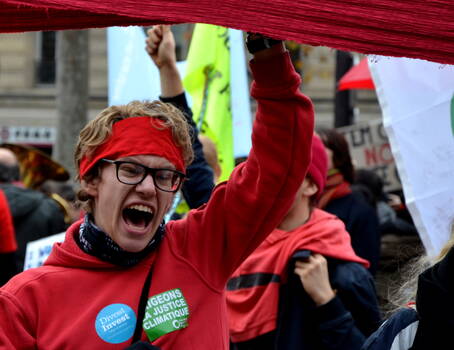
Within the tortuous logic of UN climate diplomacy, the deal may seem like a big step forward. But in light of the millions of people who are already victims of climate change, it would be cynical to use that as a measure by which to judge the outcome of the negotiations in Paris. If we use a yardstick like the drastic emissions reductions that would actually be necessary, the deal is in fact inhumane, deceitful and schizophrenic.
It is inhumane, because it simply accepts the fact that the livelihoods of millions and millions of people will be destroyed for the sake of profits and in order to maintain the living standards of the rich. The fact that the 1.5 degrees-limit appears in the text is at best a hollow victory, given that the treaty never once mentions the fact that in order to achieve this, 90 percent of the world's fossil fuels would have to stay in the ground, and that global emissions would have to be reduced by up to 95 percent by 2050. How is the deal meant to guarantee this result, if the word 'decarbonisation' did not even make it into the text?
The deal is also inhumane because it grants nothing more than charity to the global South, instead of enshrining the right to be compensated for degraded soil, sinking islands or disappearing glaciers and aquifers.
The deal is deceitful because it pretends that climate change can be stopped with soft, non-binding clauses in a climate deal, while the governments that signed it continue to push tough, legally binding trade deals that deepen and escalate the North's destructive mode of production and consumption, and contribute to weakening national environmental and climate legislation.
And the deal, finally, is schizophrenic because it claims to protect the climate, while the text in fact does everything to protect corporate profits. The only possible response to this is this: social movements will have to push through the necessary changes from below.